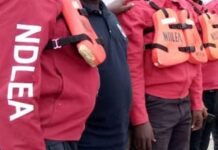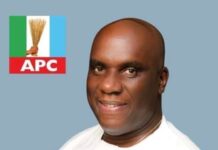The most important factor in the coming elections is that Muhammadu Buhari, the incumbent President of the Federal Republic of Nigeria, a powerful chief executive of state, is a candidate. He is seeking re-election into the office of President. That this is not a trivial or idle observation can be seen from a recent historical contrast, namely, that in the 2015 general elections, Goodluck Jonathan, the incumbent President, was not the most important factor in those contests. He was not the most important factor because he was a weak chief executive of state at the time of the contests and in the period of preparations for them.
To steer clear of mystification I propose that to be powerful in the context of our discussion is to be in relatively firm control of one’s political/electoral platform and the critical institutions of state, especially those of “law and order”; it is to be in power and not be afraid or reluctant to deploy it or sluggish in deploying it. The historical contrast we are sketching is that in the period preceding, and during the 2015 general elections President Jonathan had lost control of both his party and the critical institutions of state. You cannot deploy what you do not control. To attempt to do so is taking a grave risk. But in the current corresponding period President Buhari appears to be in firm control of party and state—at least up to the time of writing this essay. And beyond this, he has demonstrated that he is not afraid to deploy the forces under his control.
Another important factor in Election 2019 was the wisdom or sheer luck of the People’s Democratic Party (PDP) in electing Atiku Abubakar as its presidential candidate. All the contestants in the party’s presidential primary election were obviously qualified in the context of the existing social order, political culture and dominant morality in Nigeria. But Atiku’s candidacy—judging by his political antecedents—appeared most likely to attract the widest and largest support possible for the party. Again, to demonstrate that this is not an idle, opportunistic, after-the-fact wisdom it will be enough to recall that in the 2015 presidential election, it was widely appreciated that the PDP candidate and incumbent President, Goodluck Jonathan, was not the best the party could offer—given both the dominant political culture and the political conjuncture at the time.
On the contrary, in the 2015 presidential election, the newly-formed All Progressives Congress (APC) put forward its best: General Muhammadu Buhari. We must here, as always, not forget that the dominant, if not the sole consideration of the main ruling-class contestants and their platforms was what to do to win. That remains their dominant or sole consideration in the present contest. And should any reader respond that the need to win has always been the dominant or sole aim of all contestants—Right or Left—in all modern elections, I would so No: The Nigerian Left has never, fortunately or unfortunately, consciously put electoral or non-electoral victory as a realizable political objective. And yet, as an interested researcher would discover, committed leaders and cadres of the Nigerian Left had made huge selfless sacrifices in every general election since independence.
A couple of weeks ago, a Nigerian state governor belonging to the All Progressives Congress (APC) was reported in several media outlets to have predicted that although Muhammadu Buhari, the presidential candidate of his party, would defeat Atiku Abubakar, the presidential candidate of People’s Democratic Party (PDP), the latter would not be a “walk-over” in the contest. I found myself reflecting on this statement which must have been made out of frustration with political colleagues and assistants. In the course of my reflection, I brought out from vacation my concepts of “power blocs” and “political forces” in Nigeria’s contemporary political struggle—which, we must not forget, is completely dominated by the ruling class.
Only a number of reminders or explanatory notes need be summarized and inserted here. One: Nigeria’s power blocs and political forces developed from Nigeria’s ruling class, and are of the ruling class. Two: Political forces are “mini” power blocs which—being historically determined—may or may not develop into full-blown power blocs. Three: Power blocs and political forces are different from, and deeper than political parties. Four: There are only two power blocs in Nigeria, and this has been so since the end of the Civil War (1967-1970). Five: The centre of gravity of one of the power blocs is located in the north of the country while that of the other is located in the south. Six: Only an effective political intervention of the Nigerian Left can begin to dissolve these divisions or render them impotent or irrelevant.
We are not now in a position to see and appreciate what exactly led the state governor to make the statement attributed to him. But starting from that statement we may move in different directions to endorse or dismiss it.
I have chosen to employ the concepts of power blocs and political forces to endorse a revised version of the governor’s statement. That revised version is simply that neither Buhari nor Atiku would be a “push-over” in the coming presidential election. Further broken down, this revised version means that Buhari and Atiku would be the main presidential candidates and that the contest between them would be tough and tight. And the route I would suggest for endorsing that double statement is through an examination of the ongoing contest between Buhari and Atiku in each of the two power blocs and in the main political forces. We remind ourselves again that these power blocs and political forces are ruling class blocs and forces.
Starting from the last couple of months the most important preludes to Elections 2019 can be listed to include political defections, separations, combinations, re-alignments; governorship elections in Ekiti and Osun States; enactment of electoral laws; registration of voters, distribution of Permanent Voters’ Cards; compilation of voters’ registers, determination and designation of voting centres; conduct of party primaries to elect candidates; further defections in response to party primaries; maintenance of “law and order” by judicial, armed and unarmed institutions and agents of the state in response to actual breakdowns or in anticipation of breakdowns; and continuous political struggles of different forms and at different levels.
The different forms that the political struggle now assumes and the different levels at which it is waged include intra-party, inter-party, state-civil, intra-state, armed and unarmed, above-ground and underground. Also, to be listed is what is now known as “executive orders” of the president and of the presidency. In all these struggles (waged directly and through “preludes” listed above), money—in immediately usable currencies and in large, very large, volumes—is a primary and powerful weapon, second in overwhelming potency only to state power.
That a party and a candidate can lose an election even with superiority in these two forces—money and state power—proves that there is a limit to what either of them or even a combination of them can be used to do or ordered to do. And that an incumbent government can be effectively challenged in the control and deployment of the two forces is a powerful corollary. Do we need to add that these lessons are more important and useful to the Nigerian Left than to the factions, power blocs and political forces of Nigeria’s ruling class?
Madunagu, mathematician and journalist, writes from Calabar, Cross River State, Nigeria.



